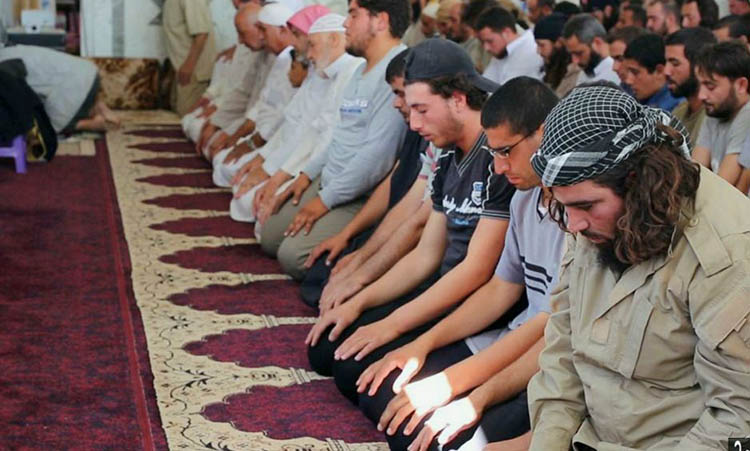Syria
Dear fellow caregivers,
You are receiving a patient from Syria.
Here is a list of useful information to know in the context of their medical care.
General Information
Distance Paris – – – > – – Damascus : 2037 miles
19 million inhabitants / Average salary: $218 per month
Literacy rate: 85% / Life expectancy: 70 years
Spoken language : Arabic
● Low immunization rates, disruption of water and sanitation systems, and malnutrition increase mortality rates.
● Massive population displacements have led to a major reduction in qualified medical personnel in Syria.
● The country is in the midst of a civil war. As a result, Syrian patients may have physical or mental disorders due to the conflict. They may also be reluctant to talk about it.
Communication

● Many Syrian men greet women by placing a hand on their chest and by saying hello.
● Family is very important in Syrian life. Reputation, honor, and family status define its members. The privacy of the family, especially the female members, is very protected.
● Syrians generally communicate indirectly to avoid embarrassment.
● Their constant desire for politeness and good manners means that Syrians will tend to say they agree, even if this is not the case.
● They will tend to stand and sit close to their interlocutors. They have no difficulty in touching others like themselves.
● Syrians expect to make eye contact during conversation.
Beliefs, Practices & Rituals

● Syria is predominantly populated by Muslims (88%) and Christians.
● Some Syrian Muslims pray five times a day in private. But this remains flexible, they can postpone their prayers if necessary.
Eating habits

● In Syria, lunch usually takes place in the early afternoon, around 2 or 3 pm. It is the largest meal of the day. Dinner, on the other hand, is leaner and is taken relatively late.
● Eating disorders due to psychological distress are not uncommon.
● Sharing meals with family and friends is a very important social activity for Syrians.
● Syrian cuisine is mainly composed of a wide variety of seeds, meats, cheeses, fruits and vegetables. Fruits and vegetables are often purchased and consumed in large quantities.
Pregnancy and motherhood

● Syrians are very affectionate and protective of children.
● In Syria, women give birth by caesarean section. Because of the bombardments, they sometimes do not have time to give birth naturally.
● Syrian women usually leave the hospital quickly after giving birth, and the family takes care of them. This is especially due to the high costs of hospitalization.
End-of-life care

● If the patient is a refugee, he or she most likely has no family or relatives in or near the country. It may therefore be useful to offer psychological support.
● It is also possible that some patients may not want to follow the full course of treatment and will want to leave beforehand.
Examples
This section allows us to share experiences. Feel free to share yours with the community.
Sources :
Cleveland Clinic – Diversity Toolkit
State of Queensland (Metro South Health) – Syrian food and cultural profile: dietetic consultation guide
Equal Times – Syrie : être mère en temps de guerre
Cultural Atlas – Syrian Culture
Excision Parlons-En – Cartographie Mondiale des Pratiques d’Excision
UNICEF – Mutilations Génitales Féminines / Excision
